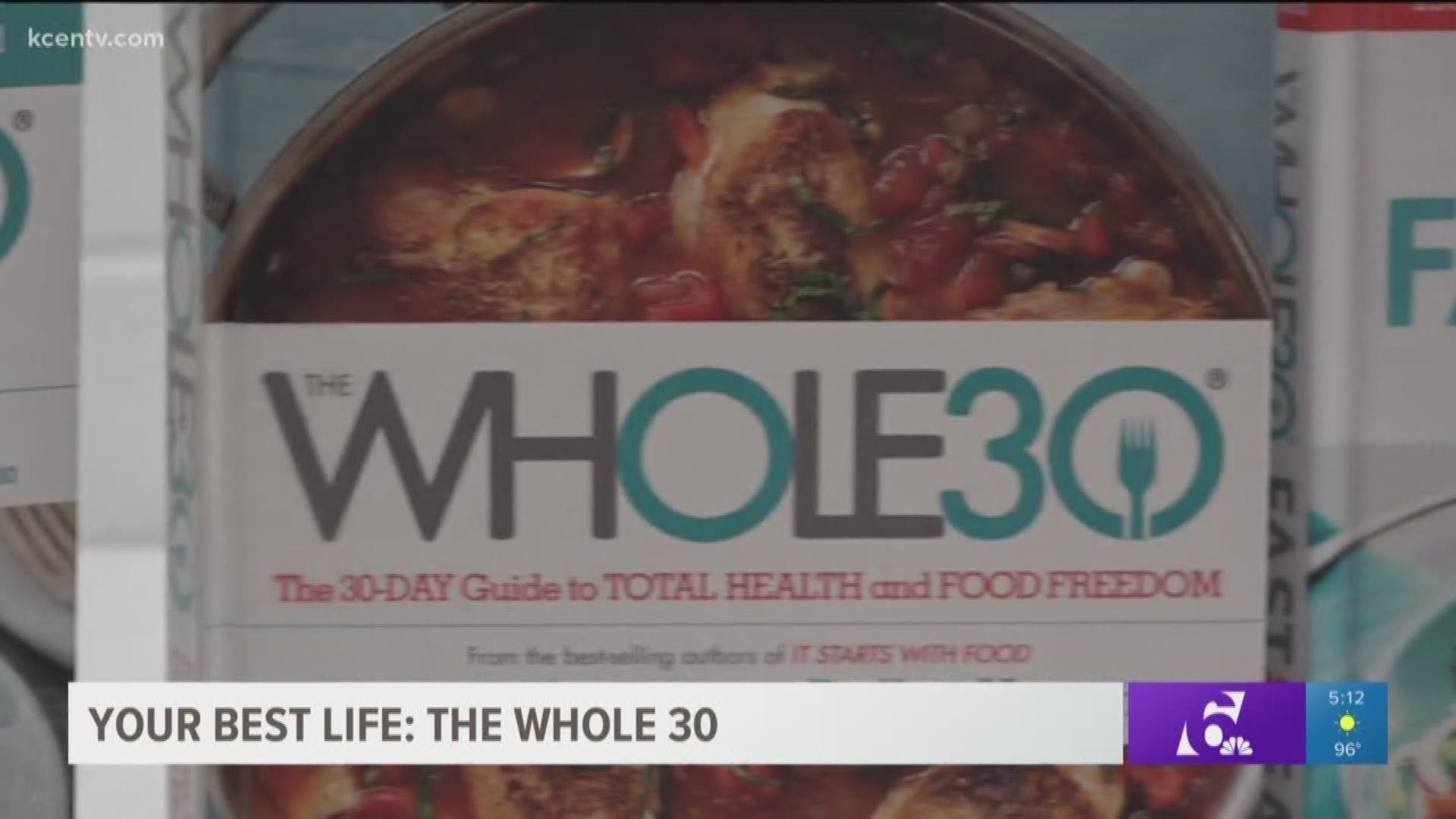Whole30 is a 30-day nutritional reset but it isn’t actually a diet.
Whitney Stuart is an RDN, Clinical Dietitian and Whole30 Certified Coach from Dallas who joined the program after it helped her handle her own food allergies. She also just recieved the 2018 Coaching Innovation Award and is co-founder of Whole30 Dallas Duo.
Stuart said, “we use [Whole30] to take out inflammatory foods from our diets and systematically add them in at the end to see how we do with them in a systematic way. But It’s also one of the only resets that talks about your emotional relationship with food and what that looks like."
Stuart said many people succeed on this program who’ve failed at diets in the past.
“We know people do Whole30 and they learn how to cook they learn about new veggies and they learn about their relationship with food and that only helps them in the future," according to Stuart.
Whole30 consists of some pretty strict rules.
There’s no grains, no alcohol, no sugar or artificial sweeteners, no dairy, no legumes and no additives.
Also, while you can weigh and measure yourself before you start, Stuart said you do not step on a scale or take measurements for the rest of the 30 days.
"So different than other diets, we know Whole30 is a reset for you to reestablish your relationship with the foods you took out," she said.
So, what do you eat? Stuart says you eat whole, non-processed veggies, protein and some fruits.
The key to success, is preparation.
Fortunately, you can find all the Whole30 books at public libraries, like the one in Temple. You can also check out the Whole30 website or Pinterest for recipes, ideas, inspiration and motivation.
What should you expect?
For the first week or so it gets stressful. Couple that with the fact that you're coming off sugar and you enter a phase Stuart calls "kill all the things.”
“We see people have this hangry, angry, awkward, I don’t want to be touched situation,” according to Stuart.
But she suggests knowing it’s coming and booking a non-food related reward like a massage, pedicure, going to a movie or playing a game with your kids.
In the second week of Whole30 you might feel tired or bloated, but when you make it to around day 15 you’ll likely start feeling a lot better.
"Physically we see people less bloated, not tired, [having] more energy, not lethargic. Their blood sugar is regulated, skin is clear, and they get that ‘glowy’ skin look,” said Stuart.
What’s different about Whole30?
After 30 days you start reintroducing the foods you took out. Then you can see how each affects your body, which in turn sets you up for long term success.
So, you can find out what makes you bloated or makes your skin break out and determine whether that food is really worth eating.
"It’s not supposed to be a whole 365! After those 30 days we see what foods are good for you and everyone is different," Stuart explained.
For more information on Whole30 you can contact Whole30 Certified Coach Whitney Stuart, Clinical Dietitican, MCN RD LD. You can also look for Whole30 books at your nearest store or library.

